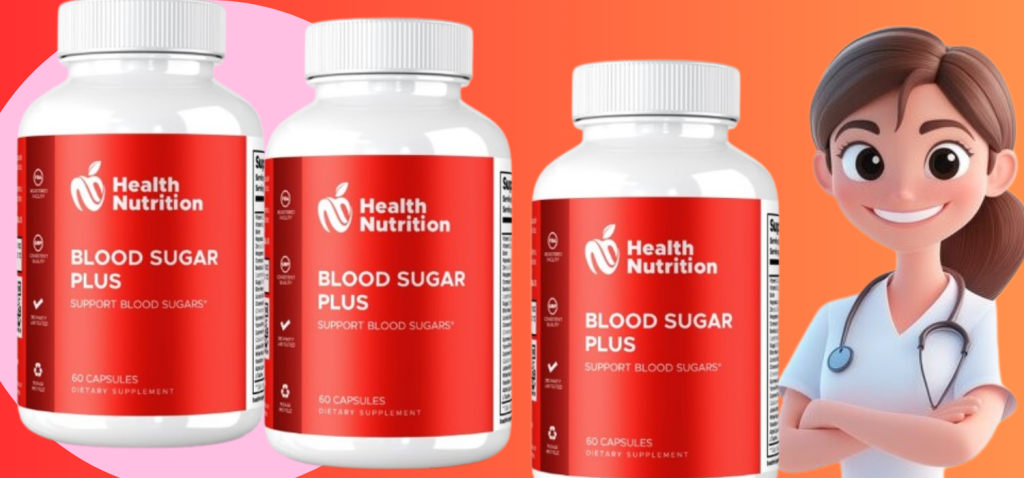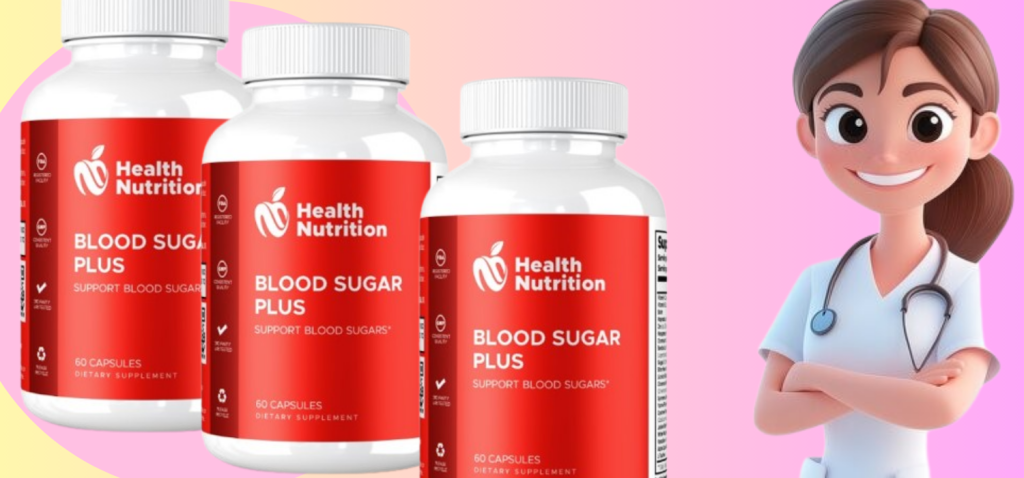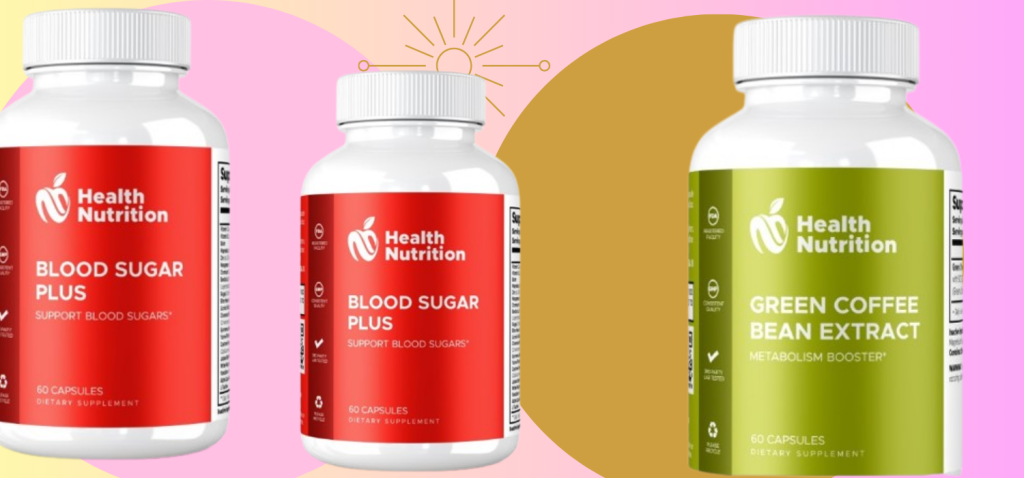Health Nutrition: A Comprehensive Overview
Excellent nutrition is crucial to avoid chronic diseases and have perfect health all the time. The scientific field of nutrition studies the impact of our food intake on our bodies and overall health. Consumption of essential components from foods like water, vitamins and minerals, proteins, fats, and carbs are all essential for correct nutrition. Food can influence almost every aspect of human development: from growth to immunity, prevention of diseases, and many aspects of mental and physical health.
The Fundamentals of Nutrition
- Essential nutrients vary because they are required in different amounts and for different purposes to maintain the normal working of the body. The two broad categories into which these nutrients are classified are the gross nutrients and the fine nutrients.
1. Proteins The body requires large quantities of protein for growth and development and for energy. These consist of:
• Carbohydrates: Carbohydrate foods are the preferred body energy food. They are present in grains, fruits, vegetables, and legumes, to mention but a few. Carbohydrates break down into glucose, which the body uses as a source of energy when carbohydrates are consumed. As sources of fibre and lasting energy, complex carbohydrates, present in whole grains, vegetables, and pulses, should be encouraged. Health Nutrition

2• Proteins: Protein is required to build or rebuild body tissues, including muscles or organs, or maintain the healthy state of tissues. They consist of amino acids, including essential ones (these must be acquired through diet) and nonessential ones (the body synthesises them). They include meat, fish, eggs, dairy products, legumes, nuts, and seeds, as well as green vegetables. Health Nutrition
• Fats: Another important energy-yielding body constituent, fats too are involved in the synthesis of hormones, maintaining the structure of cells, and fat-soluble vitamins, including vitamins A, D, E, and K. However, there are other categories of fats, including trans and saturated fats found in processed foods and good fats, such as those found in avocados, nuts, seeds, and olive oil. Above all, the diet should contain beneficial fats for the body to achieve its best state of health.

2. Micronutrients: However, the human body requires micronutrients in minimal proportions, but they are as important as macronutrients. Among these are:
• Vitamins: Vitamins refer to organic compounds that assist in the generation of energy, tissue replacement, immune system function, and other physiological functions. Different vitamins are required for different activities. The B vitamins help in energy metabolism, vitamin C in boosting the immune system, and vitamin A supports the body’s skin and eye health.
Minerals that are needed for the bones, nerves, fluid balance, and the immune system include calcium, magnesium, potassium, iron, and zinc. For example, iron is needed for oxygen transport in blood, calcium and magnesium for building bones.Health Nutrition
3. Water: The body is mostly made of water, and this is one of the nutrients. Nutrients have to be transported, waste has to be got rid of, body temperature has to be regulated, and digestion has to become simpler. Just like how having enough water in the car engine is important for it to run well, having enough water in the body is super important for general health, as a lack of water can lead to things such as poor digestion, kidney issues, and decreased cognitive function.

The Role of Nutrition in Health
It is well understood that the primary cornerstone of a healthy and happy life is a correct diet. It has an impact on close to all spheres of both mental and physical well-being. Let’s examine a few of the body’s primary functions of nutrition:
1. Preserving Vitality: Consciously putting food in the body ensures that it acquires the necessary nutrients to perform daily activities in the house. Proteins, lipids, and carbohydrates within the diet supply energy for mental and physical activities. Health Nutrition
It becomes possible to plunge the levels of energy due to improper feeding or lack of strength, fatigue, and poor concentration as well. Consuming appetite control foods with sustained balance energy in their meals is helpful in resisting food intake in between the regular meals.
2. Promoting Growth and Development: It then pointed out that adolescents and children in specific need proper nutrition for their improved healthy growth. Muscles, bones, and tissues are built through healthy diets that include, but are not limited to, proteins, vitamins, and minerals. Food nutrient deficiencies in such phases can manifest into immunological suppression, delayed development, and growth.Health Nutrition
3. Immune system strengthening: The immune system is the ability of the body to fight diseases and sickness; it is boosted by a balanced diet. Vitamins that are crucial for immune health include zinc, vitamin C, vitamin D, and antioxidants. Taking a variety of fruits, vegetables, lean meats, and beneficial fats increases immunity so that no pathogens cause potentially fatal diseases.Health Nutrition
4. Preventing Chronic Diseases: With the consumption of the right meals, you can avoid heart disease, diabetes, obesity, and certain forms of cancer. A diet that consists of whole grain products, lean and low-fat meats, fruits, and vegetables can decrease the incidence of some diseases. Conversely, one might have a diet that exposes him or her to chronic diseases associated with processed foods, sweets, unhealthy fats, and salt.
• Heart health: On the same note, research shows that diets rich in fiber from whole grains and green vegetables, antioxidants from berries and green leafy vegetables, and omega fatty acids from fatty fish are beneficial to the heart. Cholesterol and cardiovascular diseases can also be traced from high blood pressure, and many of these can easily be maintained by taking heart-healthy diets. Health Nutrition

• Diabetes Management: One’s blood sugar levels can be controlled, and type 2 diabetes can be prevented through a diet high in fibre and low in processed sugars. New meats, vegetables, and whole grain products help in balancing insulin factors and maintaining stable blood glucose levels.
The antioxidant effect of specific items of food—with an especially high antioxidant content, such as fruits, vegetables, and whole grains—has been shown to reduce the risk of various types of cancer.
5. Proper nutrition for the mind is also an important component of health, just as proper nutrition for the body is. There are some requirements for the nutrients for the optimum functioning of the brain: antioxidants, B-group vitamins, and omega-3 fatty acids. The above nutrients help boost mood, facilitate the best performance, and even decrease symptoms of anxiety and sadness if taken in large proportions. For example, omega-3 fatty acids, found in fish and flaxseeds, are good for the brain; memory boosters and mental clarity are found in B vitamins from leafy greens, whole grains, and eggs.
6. Improving Digestion and Gut Health: Absorption of nutrients and total well-being are directly influenced by the healthy working of our digestive system. Fruits, vegetables, products of legumes, and whole grain foods are important in a diet to promote a healthy prerequisite of nutritious colon that reduces constipation. Fermented foods such as kefir and yoghurt also help in the regulation of the bacteria population within the gut while keeping it healthy.

The Impact of Poor Nutrition
On the other hand, poor food diets come with a package of short-term/acute and chronic health complications. Lack of essential nutrients in diets may lead to chronic diseases, weight gain, and shortages. The following are some typical effects of inadequate nutrition:
1. Nutrient Deficiencies: If a body fails to get the right nutrients, it causes deficiencies that alter its functioning. For example, a lack of iron leads to anaemia and exhaustion, and a lack of vitamin D can harm bones. Essential nutrient calcium loss due to low intake can cause breakdown of bones and increased incidence of osteoporosis, especially in elderly people. Health Nutrition
2. Obesity: Overconsumption of foods rich in calories but low in nutrients can cause obesity, which is dangerous for health complications of diseases that include heart diseases, type 2 diabetes, and other diseases, and different types of cancers. These will include taking high-calorie, processed foods, more added sweet foods, and unhealthy fats in their diets, coupled with little or no exercise.
3. Mental Health Problems: If people rarely consume proper and healthy food, it also shows a negative effect on mental health. Other PASS emotions that may be worsened by diets that are full of processed foods and refined sugars include anxiety, melancholy, and mood swings. On the other hand, nutrient-dense foods, including green leaves, nuts, seeds, fish, etc., enhance emotional and mental health.

Creating a Balanced Diet
Thus, one principle of healthy eating is that it involves taking a variety of nutrient-dense foods from the various food groups. To achieve balanced nutrition, follow these tips:
1. Consume a range of veggies and fruits: It is recommended that at least 5 portions of fruits and/or vegetables must be consumed daily. It is also the source of vitamins, minerals, and antioxidants, all of which form an integral part of a healthy diet.
2. Pick whole grains: Include more complex carbohydrates such as whole grain foods, and these include quinoa, brown rice, and oats. More energy, in turn, comes throughout the grain, and there is more fiber.Health Nutrition
3. Add sources of lean protein: Choose the lean proteins like fish, chicken, beans, and lentils. Such supplies necessary amino acids without being so with full saturation.
4. Include healthy fats: Avoid processed fats and saturated fats and increase intake of unsaturated fats found in avocados, almonds, and olive oil.
5. Remain hydrated: It is recommended that water should be taken in large volumes during the day with the aim of full, adequate hydration. Water is involved in the
regulation of temperature, absorption of nutrients, and digestion.
6. Cut back on sugar and processed foods: Cut down on the sweetened drinks, refined foods, and calorie-protein-rich foods. I marvel at them because they lack nutrients and instead cause chronic illnesses and make people fat.Health Nutrition
Conclusion
Nutrition is a significant part of maintaining a good state of health for the population. By thus focusing on eating foods that are healthful and containing nutrients that the body requires, people can improve their lives, decrease their probability of ever developing any of the chronic diseases, and perhaps in the long run live a healthier and happier life. For sale, implementing a healthy lifestyle entails understanding the roles of water, macronutrients, and micronutrients as far as diet is concerned. All in all, we realize that nutrition is a winning strategy that helps mankind have healthier and more fulfilling lives.
.